Here's what to do with your leftover food instead of binning it
Never buy lunch again
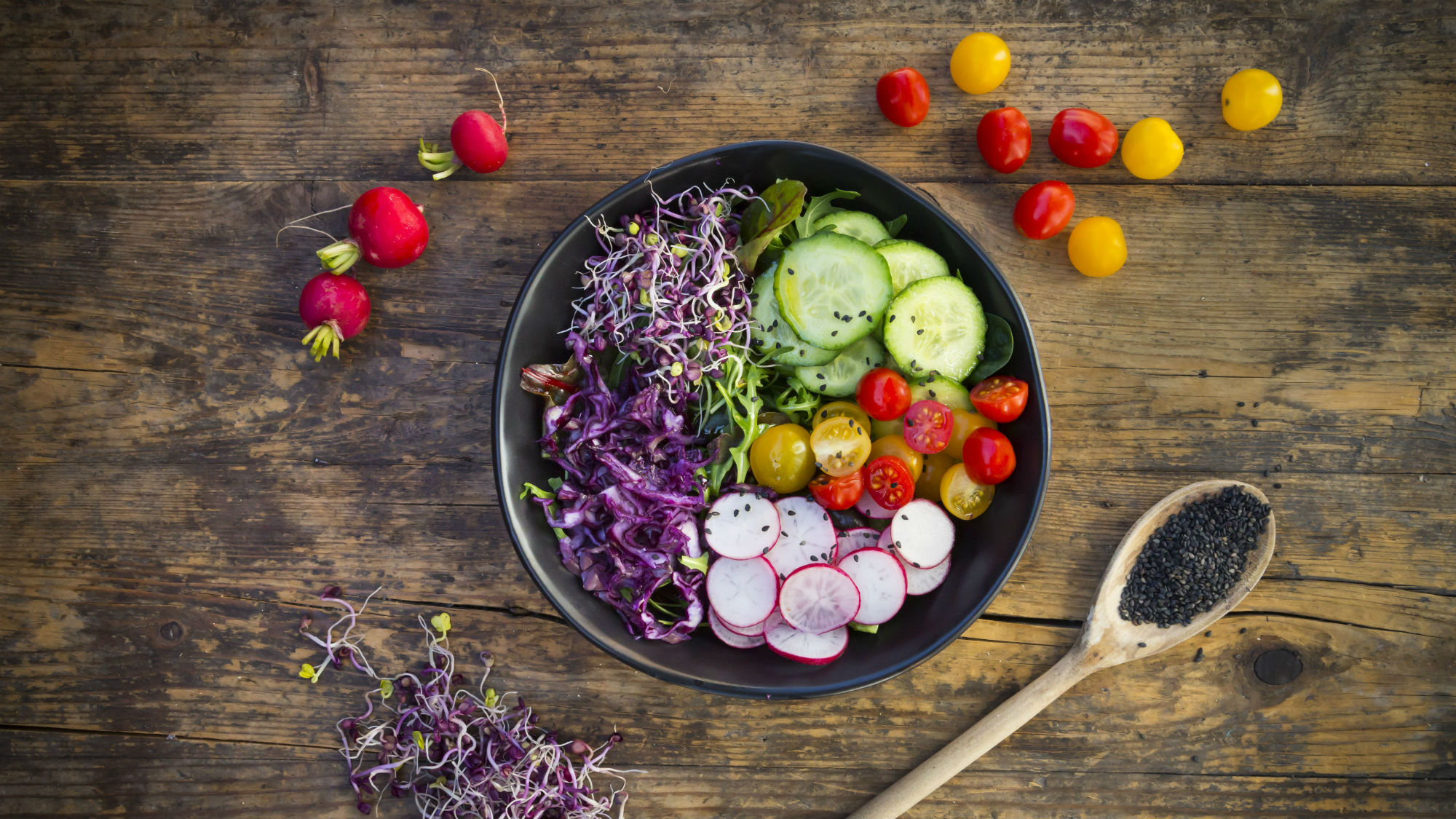
Never buy lunch again
Words by Sophie Hockings
The last five years has seen the return of Doc Martins, the jelly sandal, and the scrunchie, but one trend that is sure to make a more meaningful impact on the world could be summarised by the age-old mantra waste not, want not. With the opening of the first zero-waste supermarket in London, and Zero-Waste entrepreneurs influencing thousands via Instagram, sustainability is firmly back in fashion. We spoke to some of our favourite food waste bloggers and entrepreneurs to find out how we can start saving in the kitchen, and why, when it comes to food waste, the most important thing is to #startsomewhere.
Ingrid Caldironi, Founder of Bulk Market, London's First Zero-Waste Supermarket
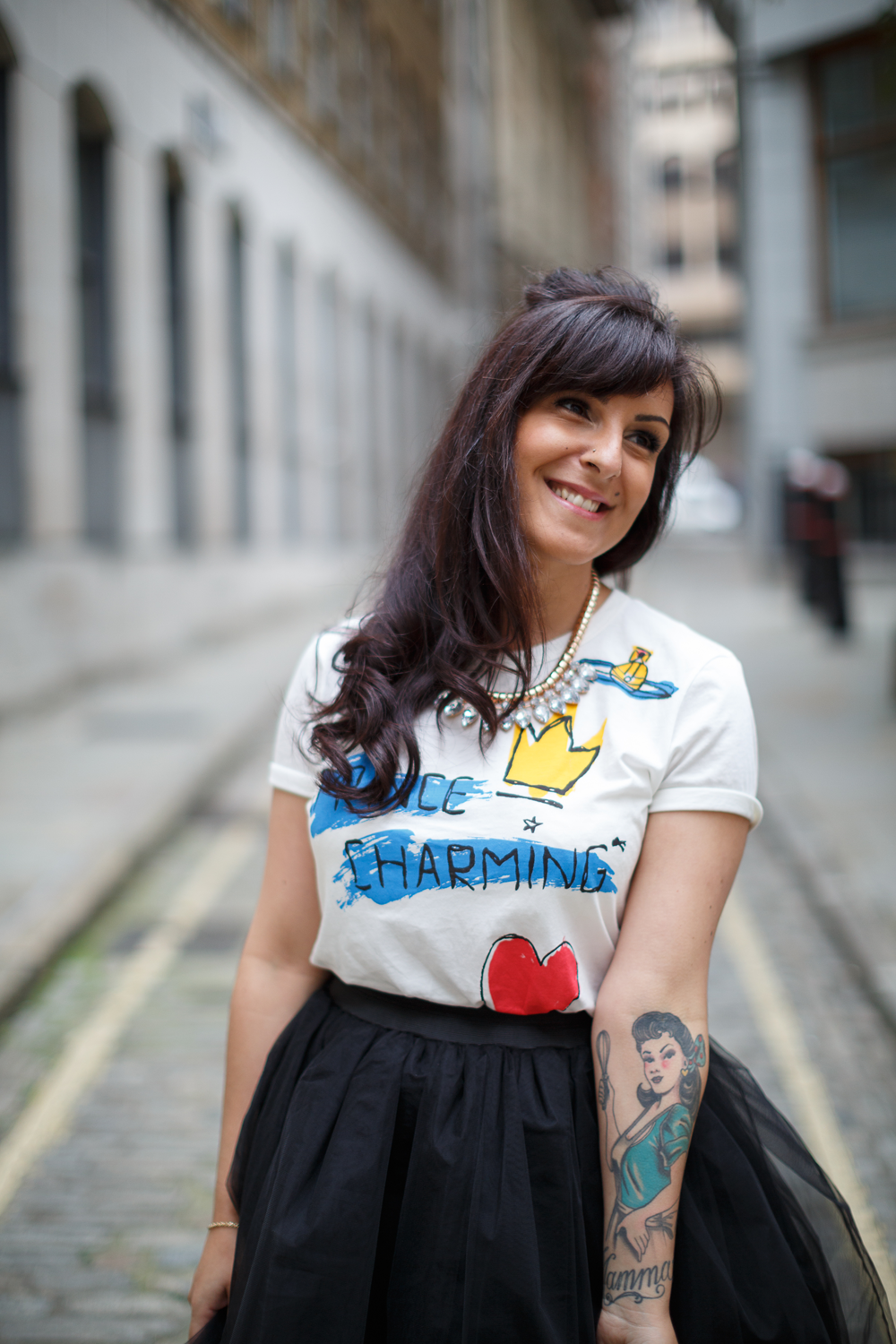
Ingrid opened London's first zero-waste food market in Dalston this year. She told us why: 'Bulk Market was born from my own needs. I wanted to go zero waste but I realised how difficult it can be to shop this way in supermarkets. I used to spend at least 4 hours every Saturday doing my grocery run, going to different shops in London to buy different items, and hygiene products were a pain to find plastic free. I knew that I wasn't alone and that there was a real need for a one stop shop for everything zero waste. Not only was plastic packaging a problem, I also wanted to support companies with a mission aligned to the circular economy, committed to caring for the environment, animals and people. My shop is how I think a grocery should be: supporting local, seasonal, bulk and organic.
'Buying things in bulk reduces the plastic packaging you take home, makes your life easier (no more fights over who is taking the rubbish out!) and also forces you to be healthier (no processed food in sight). Plastic is a highly-engineered material designed to last for centuries, which in 95% of the cases is tossed in the bin after its first use. Plastics can be very complex and contain a lot of different layers, which makes their recycling-value very limited, whereas cardboard, glass and metal can be widely recycled. Their effects in human health are also worrying: as plastics find their way into oceans, they enter our food chain and create a massive pollution. Even plant-based bio-plastics need specific temperatures and environment to successfully break down in nature.
Ingrid's top tips for tackling food waste:
- Start by eliminating the 5 big offenders: disposable coffee cups, disposable water bottles, plastic straws, disposable plastic cutlery, and plastic carrier bags. Reusable alternatives are stylish and better for the planet.
- Arm yourself with a zero-waste basic survival kit, complete with bamboo cutlery or a spork, a reusable coffee cup with can double as a drinking cup, a reusable straw and an organic cotton bag.
- Avoid buying bottled water by refilling a reusable bottle with tap water, and buy food in bulk
Hannah McCollum, founder of ChicP
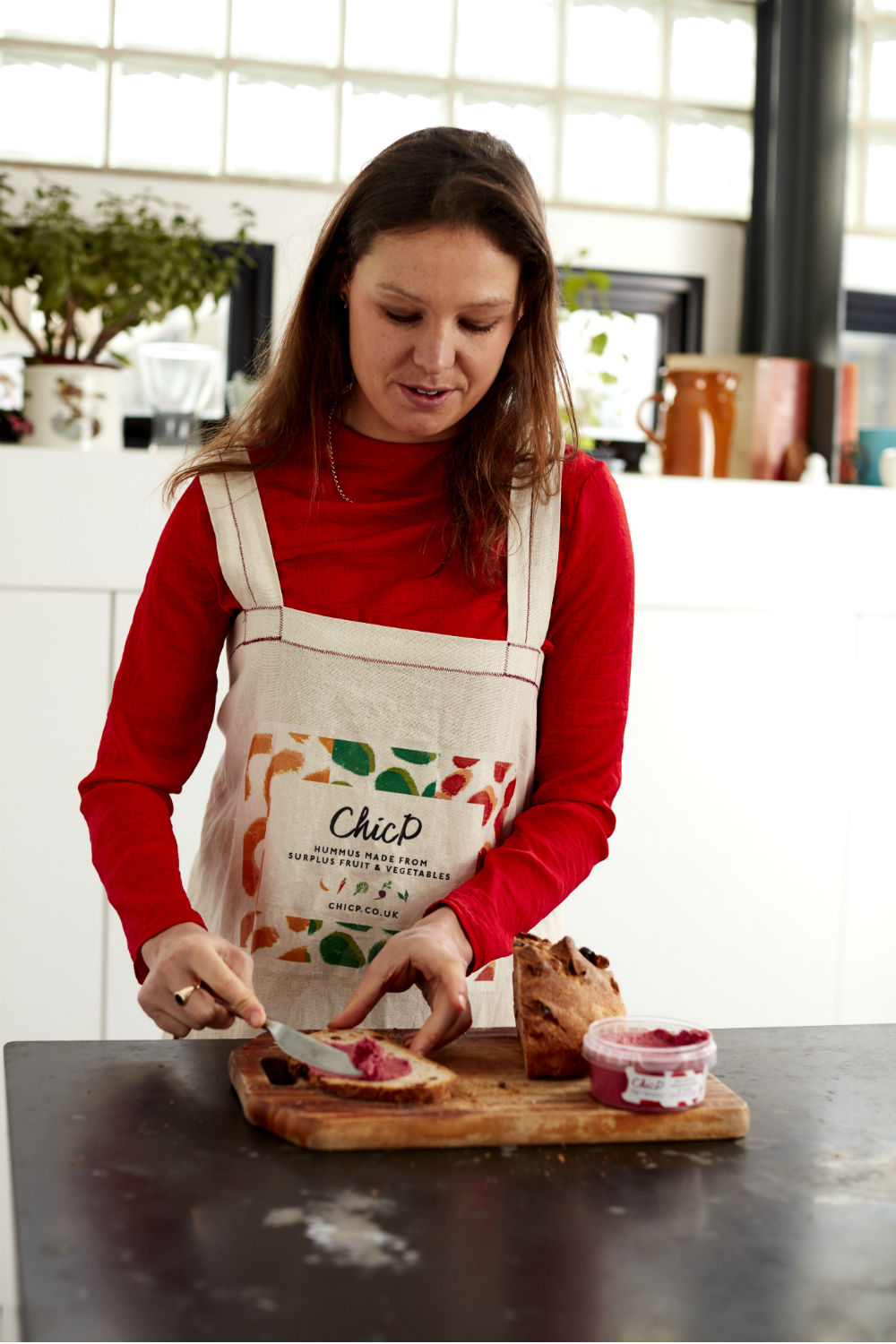
Making hummus 'chic' from day one, Hannah McCollum, chef turned entrepreneur, founded ChicP to ‘encourage people to think differently about the way they eat’. ChicP takes unwanted, imperfect raw vegetables, that would usually be considered waste, and transforms them into a range of hummus that is not only delicious but super sustainable. A big motivator for Hannah is highlighting the blight of food waste in the food industry - over forty per cent of British crops are rejected because of their shape or size and a whopping 1/3 of food we produce in the UK is never eaten. Hannah wants ChicP to reflect values which will change that.
Hannah's top tips for using your leftover veggie food waste:
'Two keys ways to combat food waste is simply by picking up the ugly fruit and veg - it does not taste any different to the pretty veg! And never be afraid to try new things in the kitchen - go online, see what's out there, and create new and delicious dishes, and save for lunch the next day. Absolutely everything in your kitchen can be used, for example:
Marie Claire Newsletter
Celebrity news, beauty, fashion advice, and fascinating features, delivered straight to your inbox!
- Bones can be boiled with scraps of vegetables overnight to make a fabulous stock or broth - Roast the stems of broccoli and cauliflower to dip in hummus - Old salad leaves can be blended, seasoned and made into fabulous pesto - Leftover pulses can be easily blended to make hummus or mash - Don’t be afraid to give food away to a neighbour, or at work, and be confident in what you have cooked - that could make someone’s day!'
Louisa Ziane, Chief Brand & Finance Officer, Toast Ale
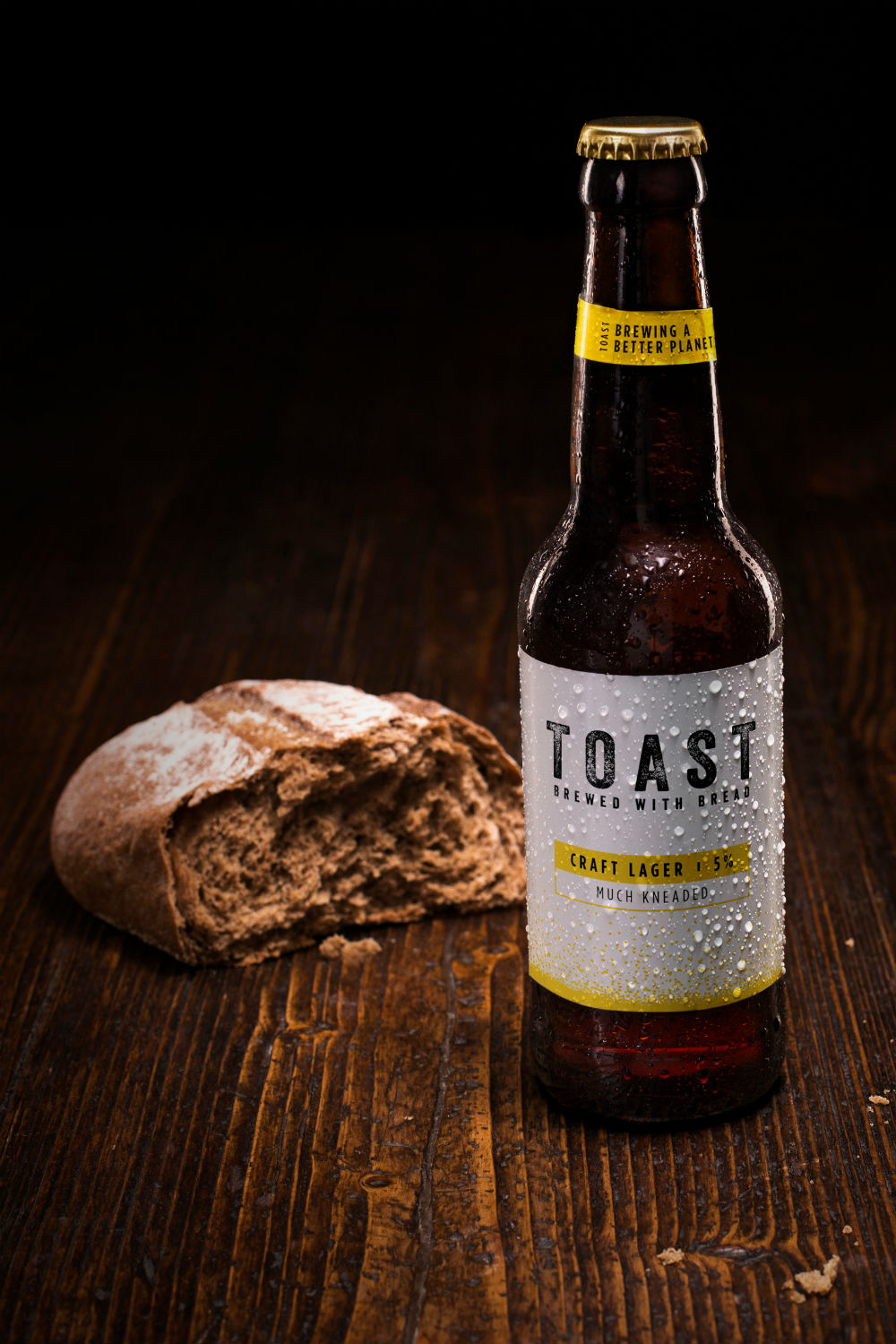
Forty-four per cent of bread baked in the UK is wasted. This is a food-waste tragedy, because all this wasted bread could be used to make beer. Thankfully, at Toast Ale they have mastered this sustainable process to produce award-winning beer from the surplus bread at their local bakeries and sandwich makers. Plus, with all profits going to the charity Feedback who campaign for a better food system, they really are ahead of the game in making an impact on the excesses of the UK food industry.
Louisa told Marie Claire: ‘It's really as simple as learning to value our food, including the land, energy and water that goes into producing it, and then enjoying it. Three easy ways to cut down on food waste is to buy only what you need, use your leftovers in creative ways, and freeze or preserve any surplus. We're making beer because we believe to change the world, you've got to throw a better party than those destroying it.’ That's a slogan we can definitely get on board with.
ToastAle's top tips for cutting down on food waste:
1. If your sourdough bread starts to go hard, dab a little water on it and toast it. It'll taste as soft as the day you bought it. 2. If your bananas are turning brown, mash them up and freeze. Bingo, you've just made healthy ice-cream. 3. If your lettuce is starting to droop, place it in a jug of cold water. Treat it like cut flowers and you'll have crispy salad for days.
Ilana Taub, Co-founder of Snact
'The importance of sustainability is so obvious to me, and food waste seemed like an immediate issue we could tackle,' says Taub, who collects unsold produce from London's wholesale markets and, armed with nothing but a dehydrator and a passion for healthy, sustainable food, creates the ultimate easily transportable healthy snack. Her 'fruit jerky' business makes use of fruit and veg that would normally be discarded for being too big, too small, or too ugly. 'This summer we launched our banana bars, tackling the 1.4 million bananas that go to waste in the UK every day.' As you'd expect, the packaging is completely compostable.
Snact's top tip for cutting food waste
- Sharing is caring! Use an app like Olio to share food with your neighbours, donate to a nearby surplus cafe, or find other initiatives in your local area that redistribute food
Jenny Costa, founder of Rubies in the Rubble
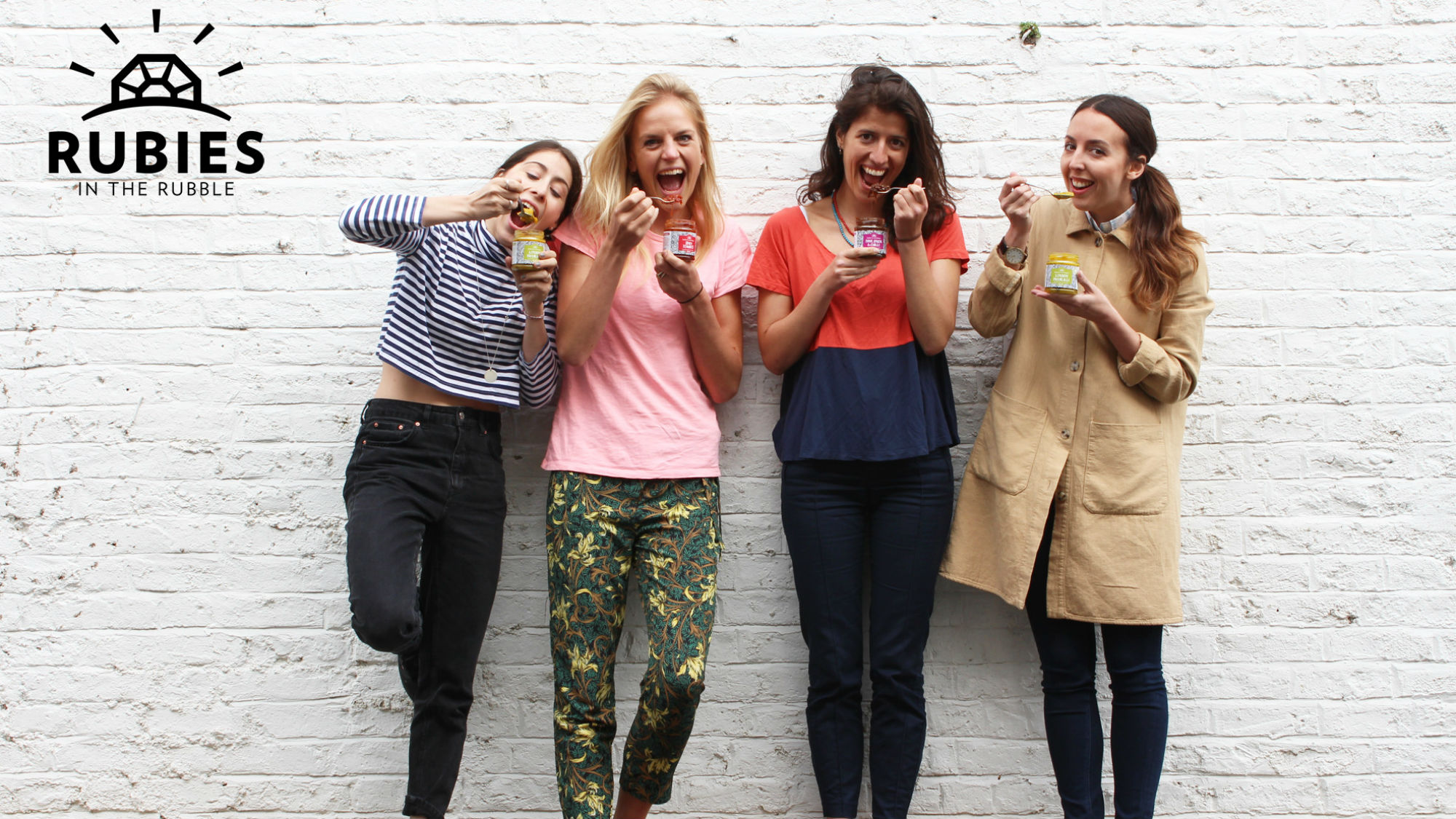
Rubies in the Rubble wants to up your condiments game while tackling food waste. Founder Jenny Costa says: 'We believe all good food should be cherished as a precious resource. We're on a mission to raise awareness of the need to value our food supply, and make sure nothing is wasted. We believe that as we struggle to feed a growing population and continue to waste 1/3 of all the food we produce, surely we need to better manage what we have first, rather than continuing to grow and waste more'.
Jenny's top tips for tackling food waste:
- Know what is in your fridge before shopping - Eat with the seasons when things are naturally in abundance - Use your freezer! Freeze half a loaf when you know you will be out, or make soup for another day, freeze and store
The leading destination for fashion, beauty, shopping and finger-on-the-pulse views on the latest issues. Marie Claire's travel content helps you delight in discovering new destinations around the globe, offering a unique – and sometimes unchartered – travel experience. From new hotel openings to the destinations tipped to take over our travel calendars, this iconic name has it covered.
-
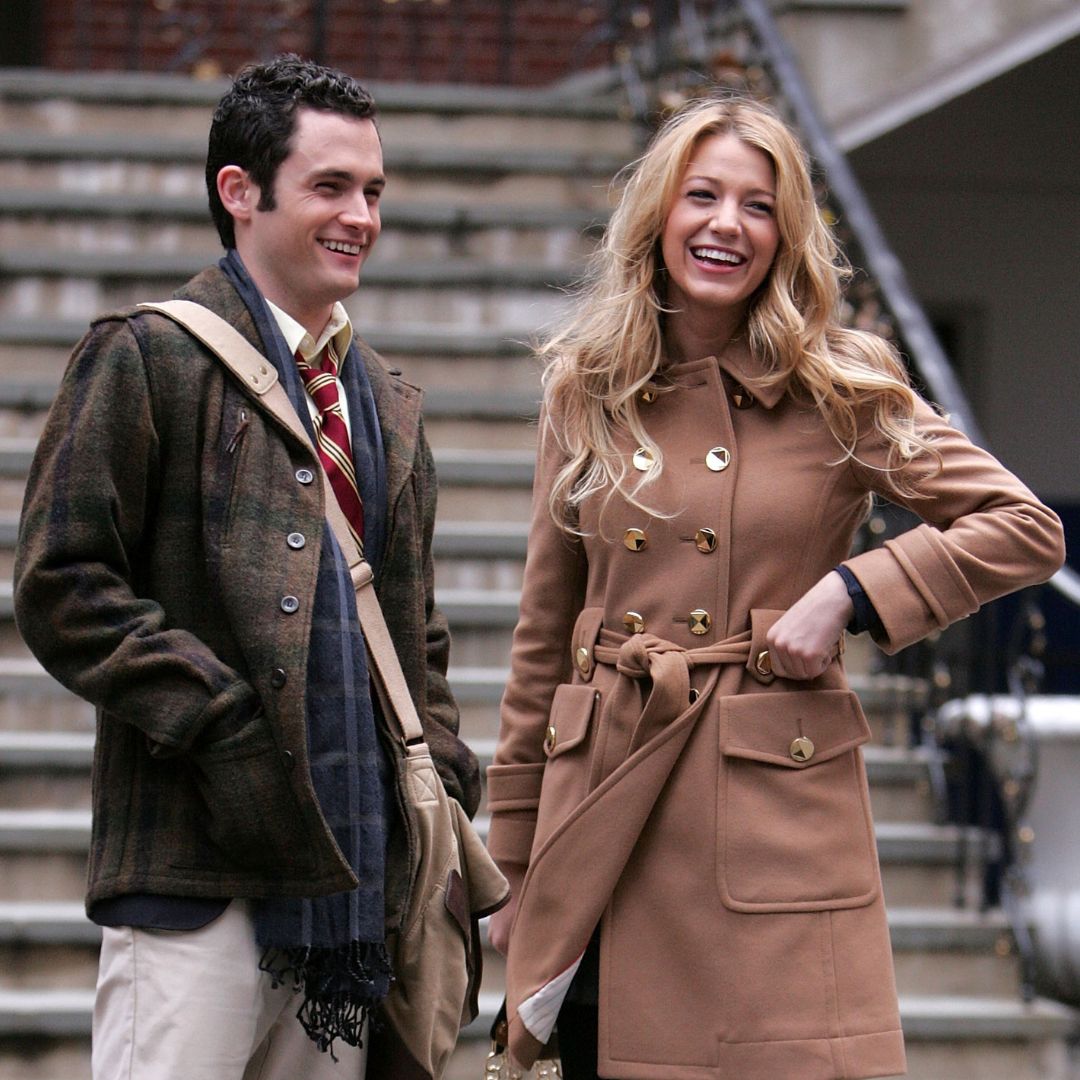 Penn Badgley and Blake Lively kept their breakup a secret from the Gossip Girl cast and crew - here's what we know about their former relationship
Penn Badgley and Blake Lively kept their breakup a secret from the Gossip Girl cast and crew - here's what we know about their former relationshipBy Jenny Proudfoot
-
 Spring has finally sprung - 6 best outdoor workouts that are totally free and boost both body and mind
Spring has finally sprung - 6 best outdoor workouts that are totally free and boost both body and mindSoak in the nature and boost Vitamin D *and* endorphins.
By Anna Bartter
-
 This iconic rose perfume is a compliment magnet—it makes me feel ‘put together’ after just one spritz
This iconic rose perfume is a compliment magnet—it makes me feel ‘put together’ after just one spritzGrown-up and elegant, yet not at all dated.
By Denise Primbet